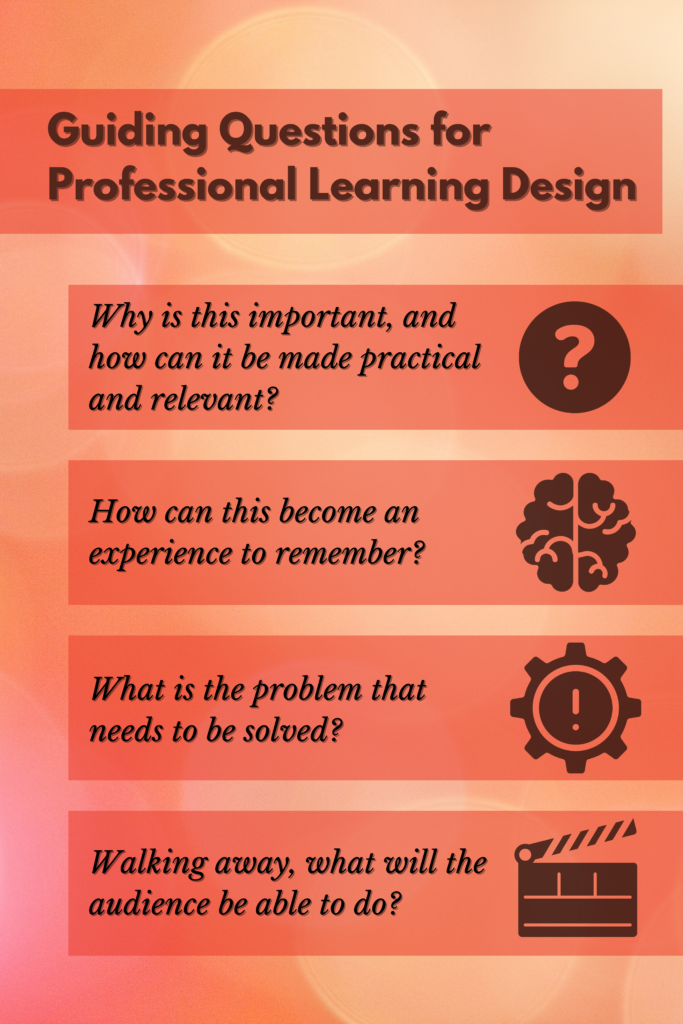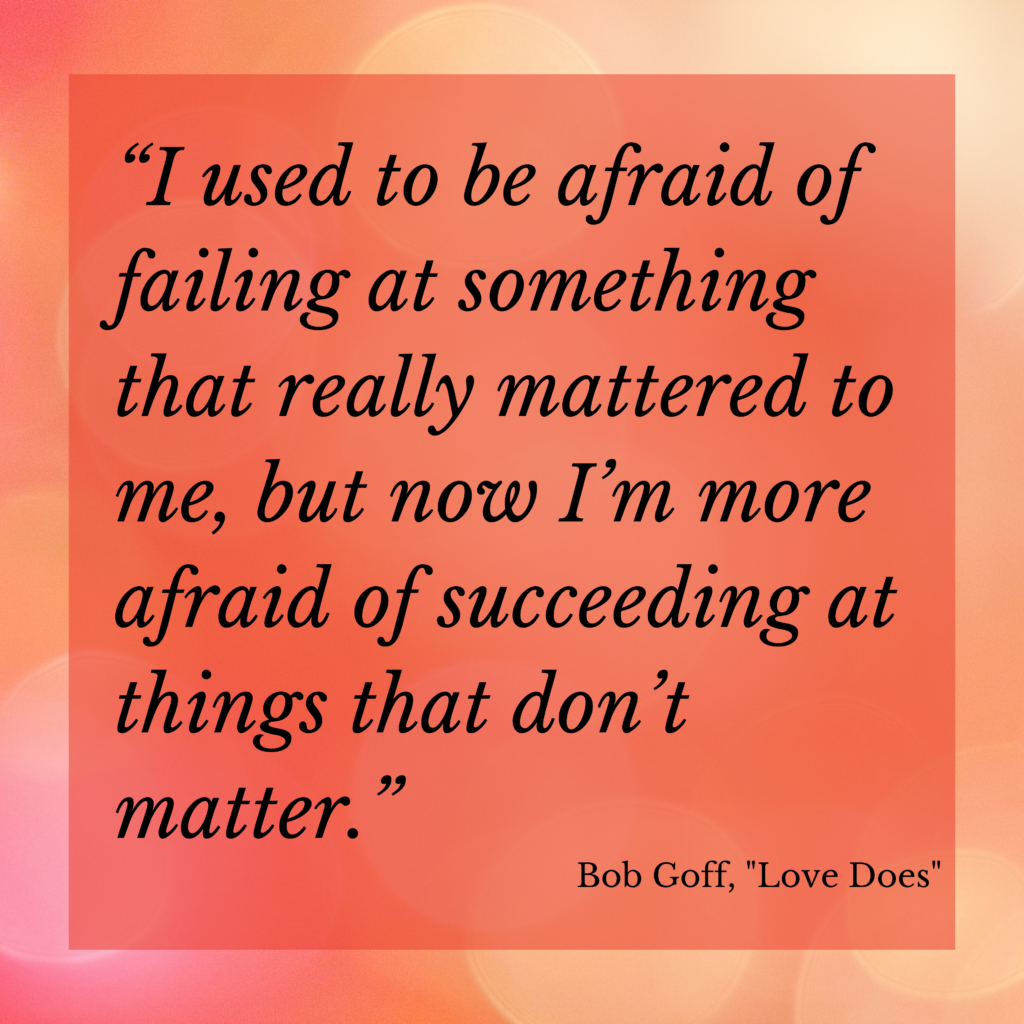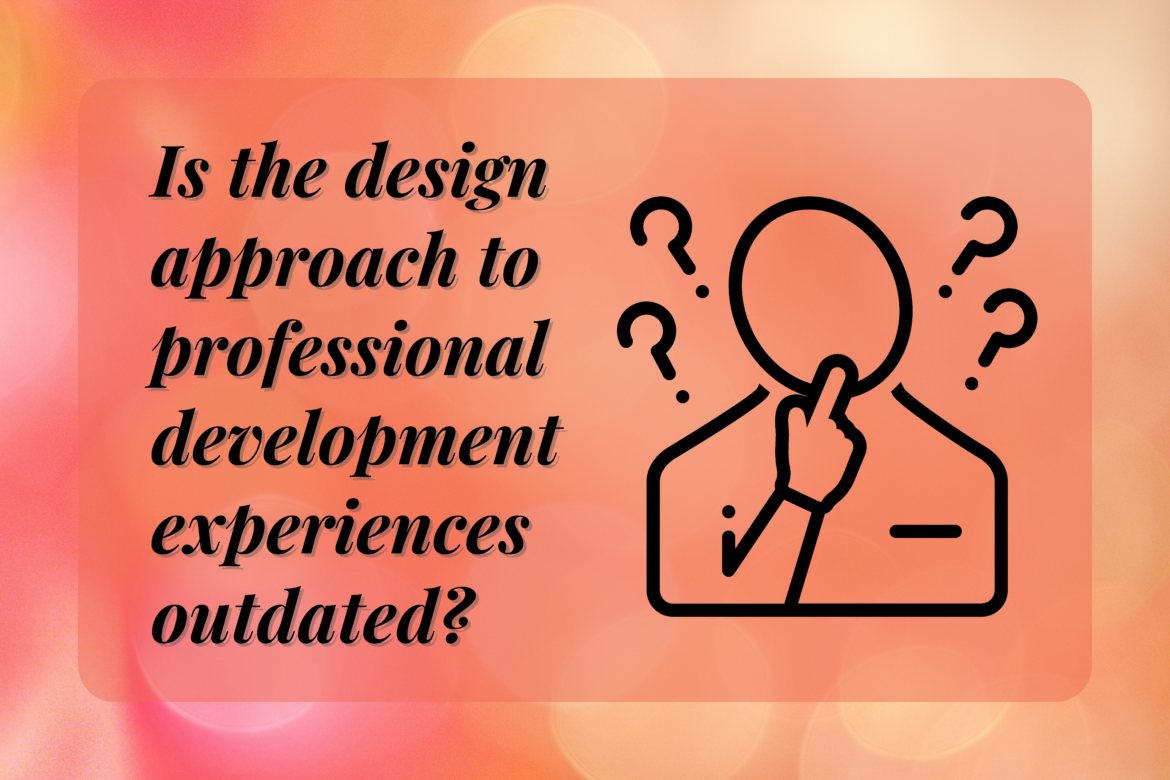Professional development seems to be getting a bad rep. Ok. Let’s rephrase. Mandatory professional development gets a bad rep. Beginning of the year professional development is focused on bringing information to teachers in ways that can be distracting and ineffective. The purpose of professional development is to build up teachers, empowering them to make the learning experience exponentially better for the students they serve. Then why does the overall structure of professional development consist of a speaker with a slideshow that lacks engagement or participation from the crowd? Maybe the design approach to professional development experiences has become outdated, and it’s time to level up the approach. But how? In order to level up the professional development design, an understanding of pedagogy and andragogy is needed.
What Is Pedagogy?
Pedagogy says, “I am your instructor, and I have information that I am going to give you. Here we go.” Pedagogy lends itself to a teacher-centered approach where the students consume information from the teacher. This process is broken down into small elements that can be useful in a professional development setting, but in thinking about training professionals, there might be more effective approaches.
What Is Andragogy?
Andragogy says, “Here are all the essential ideas and terms that you need for your learning journey. I’ll be with you as you start to discover new ideas.” Designing professional learning with an andragogical mindset is offering ownership to the audience, and providing steps, resources, and challenges to complete the learning experience. As the information is discovered, participants are able to make real-world connections and build a strong foundation of understanding.
By adopting andragogy strategies, professional developments become more focused on the adults that are participating. Adults don’t need to be spoon-fed information, they need to be challenged and have a purpose!
Guiding Questions for Designing Professional Development
Moving toward an andragogical approach requires a mind shift in learning design, focusing on the participants’ outcomes rather than the expertise of the speaker. Here are some questions to consider when designing a professional development experience.

Why is this important, and how can it be made practical and relevant?
Sketch out the training plan. What is the end result? What is the expected outcome for the session, and how can the path of learning be defined by questions instead of PowerPoint slides? As an alternative to planning an outline or developing a summary list, paint a picture of what the end result of the session might look like, then plan from there.
How can this become an experience to remember?
If your session could have a theme song, what would it be and why? Throughout the learning experience, what are the teachers doing? Will they produce something creative and new? How can you help your teachers “trip over the truth?” What experience can you take your participants through to create learning that sticks?
What is the problem that needs to be solved?
Instead of telling teachers what to do, challenge them to figure out how to solve the problem. Let them take on the role of creator and problem-solving designer instead of the consumer in the sessions. What are the driving questions that point the participants back to the overall objectives?
Walking away, what will the audience be able to do?
As the participants sit down a day, week, or month after this session, what will they be able to apply to their teaching right away? Has that been added to the session objectives to support participant growth and development? A copy of the slideshow, though valuable to many, does not give the participants an out-of-the-box ready product that makes the objective an active part of the classroom the next day.
The Real Challenge
Bob Goff wrote in his book “Love Does:”
“I used to be afraid of failing at something that really mattered to me, but now I’m more afraid of succeeding at things that don’t matter.”

Consider the next professional development that needs to be designed as an opportunity to create something that matters to the participants. Will there be opportunities for participants to experience the information that is being presented firsthand, or simply add another slideshow to the vast folder of past PD experiences? If the focus of education is to become more personalized, and differentiating for all students, then the professional development created should inspire teachers to embrace those strategies in practical, engaging ways. As a designer of professional learning the challenge isn’t what you know, but rather, what control you can give away to your participants.
Taylor is a TCEA 2023 presenter! He’ll be leading three sessions you don’t want to miss on topics like leadership, teaching computer science, and how his team went on the road to connect with teachers in the district. Advanced pricing runs through January 10, so register soon for the best price!



1 comment
These ideas could also align within the classroom too! Thanks for your thoughts!